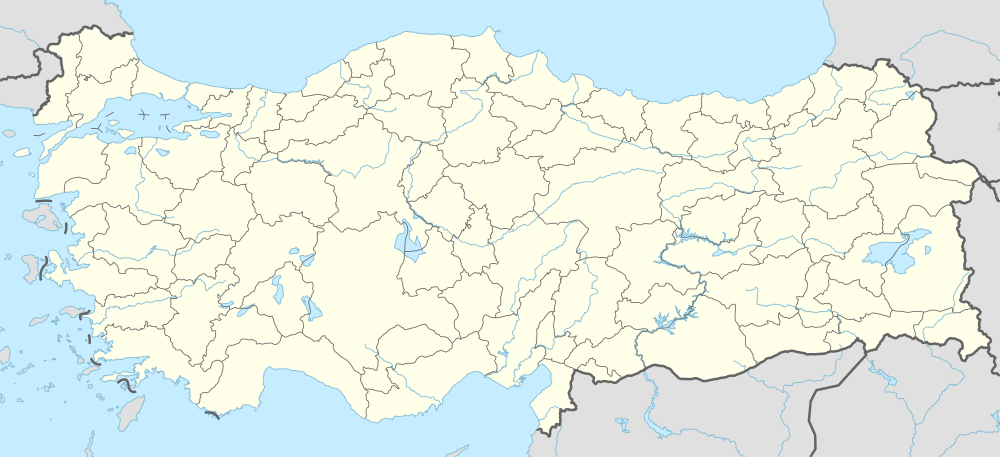Taşkale (Kızıllar)
| Taşkale (Kızıllar) | |
|---|---|
| Town | |
 Taşkale Location in Turkey | |
| Coordinates: 37°08′N 33°37′E / 37.133°N 33.617°ECoordinates: 37°08′N 33°37′E / 37.133°N 33.617°E | |
| Country |
|
| Province | Karaman Province |
| District | Karaman central district |
| Elevation | 1,340 m (4,390 ft) |
| Population (2010) | |
| • Total | 851 |
| Time zone | EET (UTC+2) |
| • Summer (DST) | EEST (UTC+3) |
| Postal code | 70150 |
| Area code(s) | 0338 |
| Licence plate | 70 |
Taşkale is a belde (town) in Karaman Province, Turkey
Geography
Taşkale is in the east of Karaman and on the northern slopes of Toros Mountains at 37°08′N 33°37′E / 37.133°N 33.617°E. The highway distance to Karaman is 40 kilometres (25 mi). The older quarter of the town which is of interest is 3 kilometres (1.9 mi) at the west . The older town is made of series of caves which are used presently as cereal silos. The population is 851[1]
History and people
The town had been used by the early Christians who used the caves as effective sheltering against the Roman authority. The Mamazan Monastery just at the west of the town is also a cave monastery. After Christianity was legallized the town probably lost its importance . But in the 13th century the town regained its importance as a hideaway. During Mongol expansion a Turkmen tribe named Kızıl from the valley of along Atrek River (modern Turkmenistan) migrated to Taşkale. According to an unverified claim, the paternal side of Atatürk (founder of Modern Turkey) was also a member of Kızıl tribe.[2]
Economy
The main economic activity is the production of hand made rugs. There are over 200 handlooms and the rugs produced in Taşkale are known as Kızıllar rugs (or sometimes Kızıllar ladiği)
Future
According to Sustainable development report prepared by the Ministry of Environment and Forestry (Turkey) the projected population of Taşkale in 2025 is 6000. The present master plan of the town is found to be insufficient for the future expansion. A renewed plan including tourism and marble mining facilities is proposed.[3]
References
- ↑ Statistical Institude page
- ↑ Mayor’s page (in Turkish)
- ↑ Mersin Karaman Bölgesi Planlama Bölgesi Çevre Düzeni Planı, TC Çevre ve Orman Bakanlığı p.37